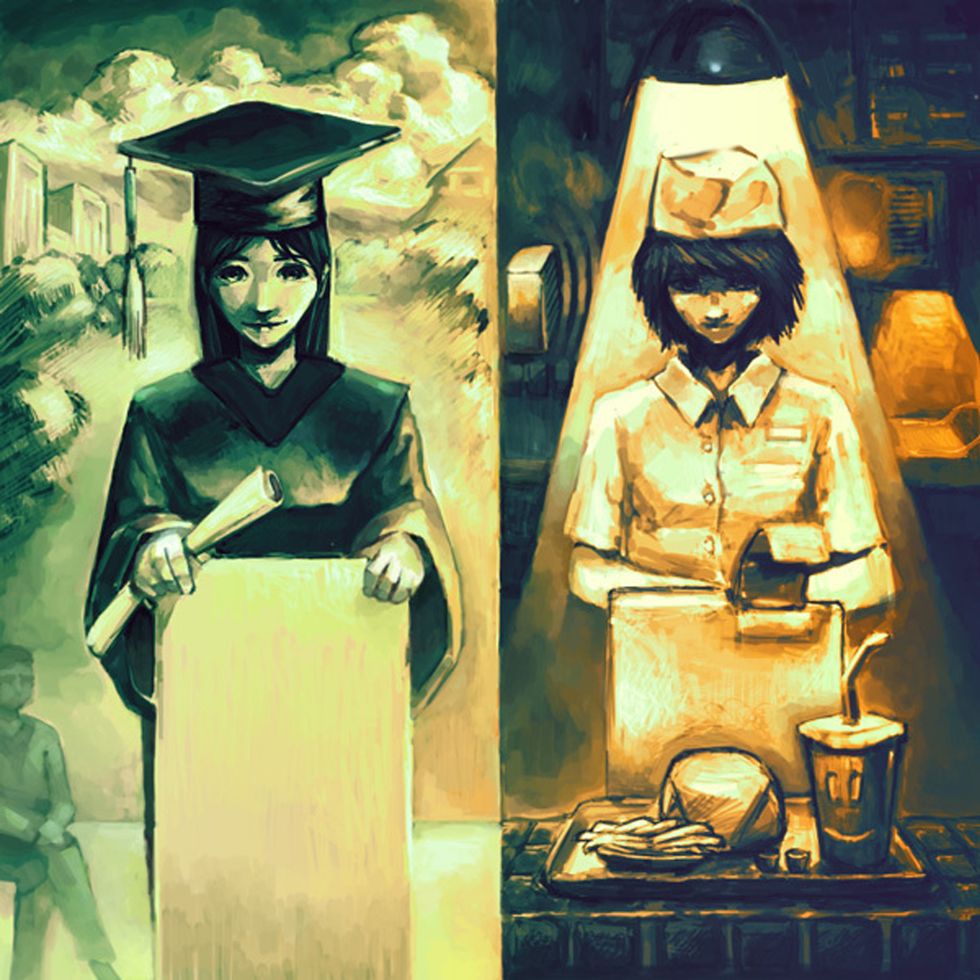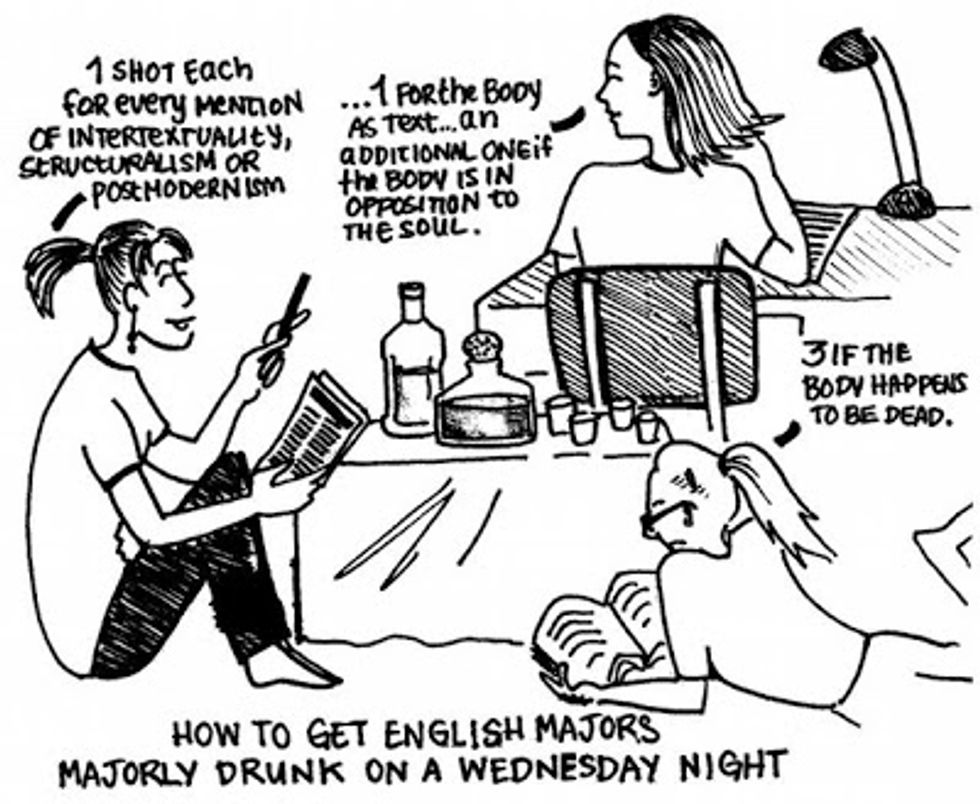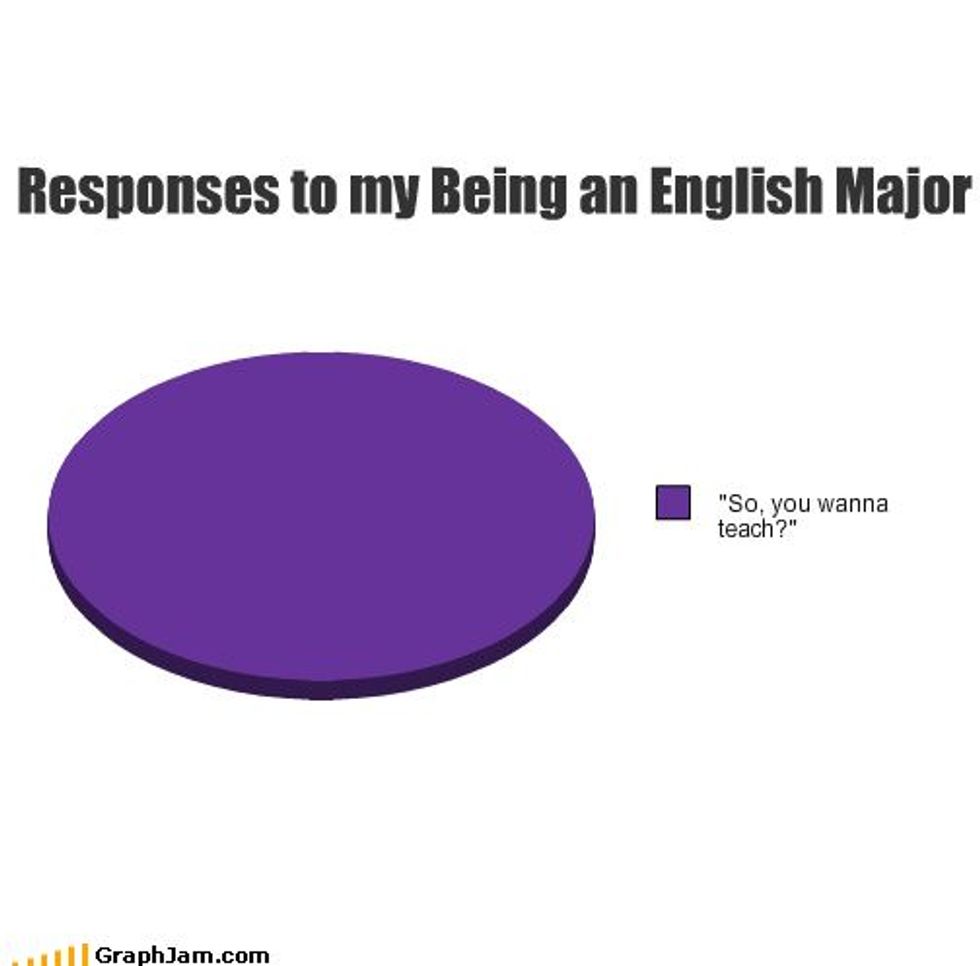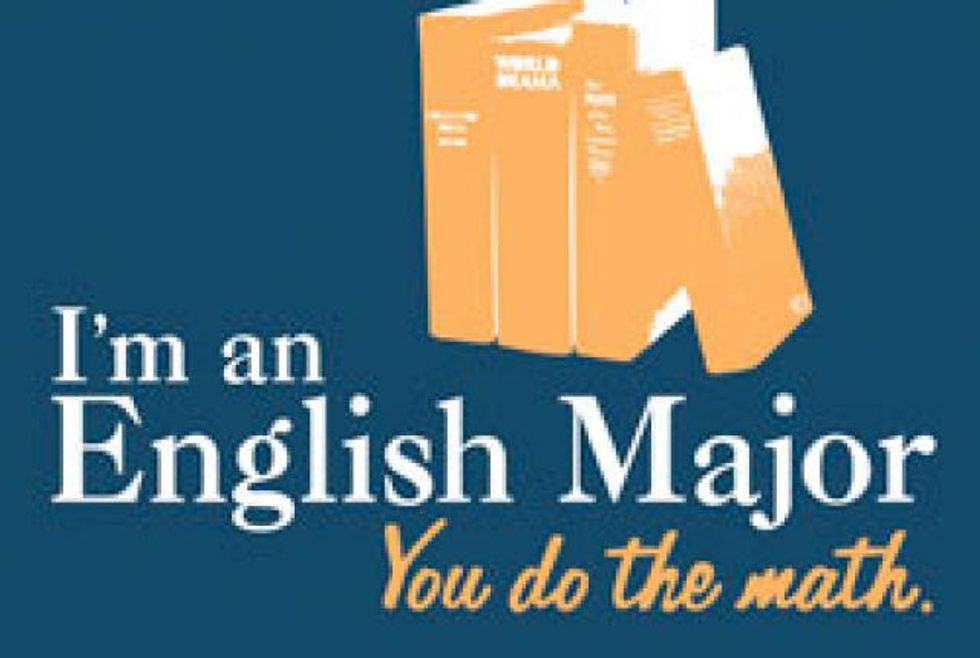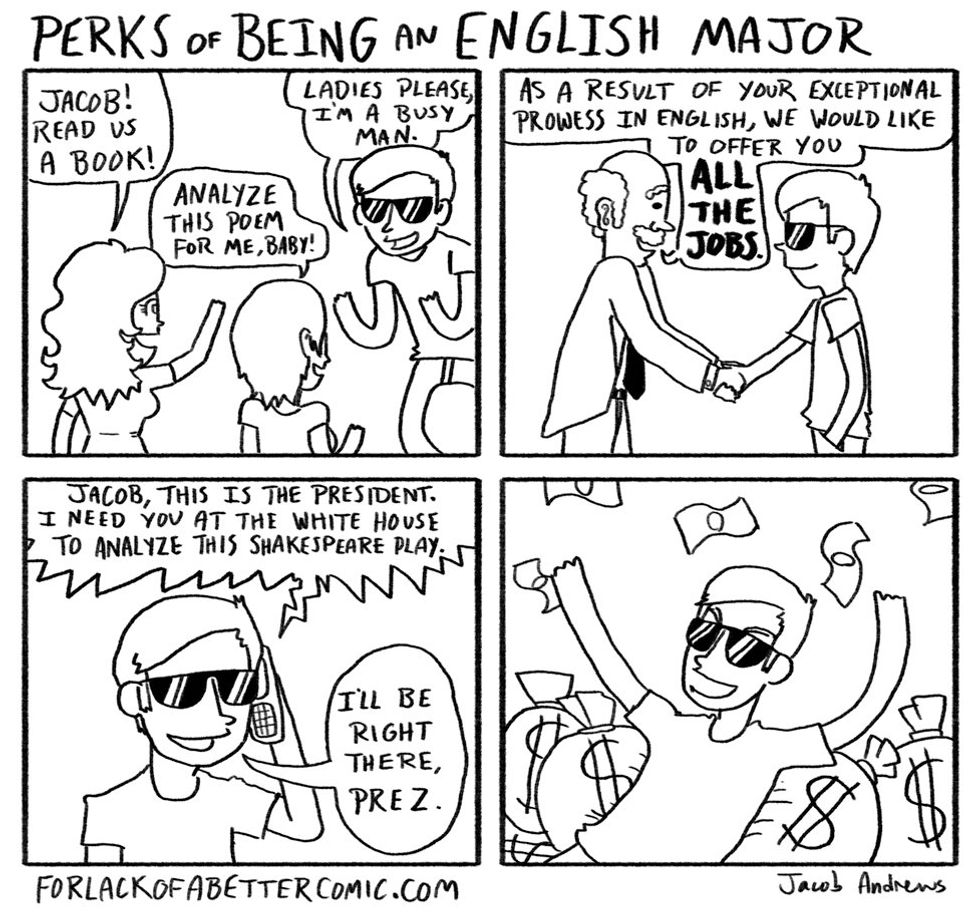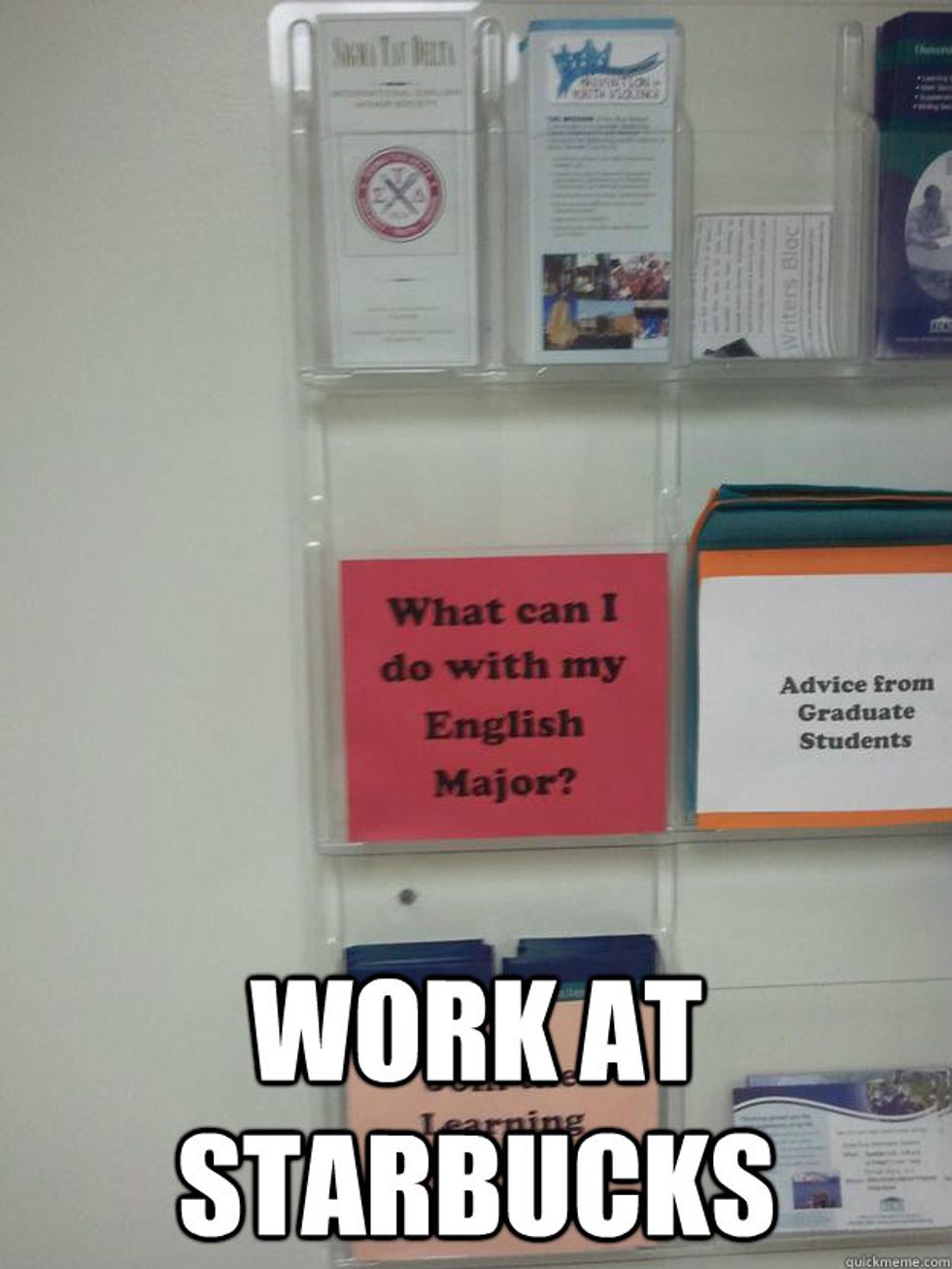Major-shaming is the act of judging someone silently or otherwise based on their choice of degree in higher education. Usually, major-shaming is directed towards those degrees that society assumes are useless. This assumption comes from a misconception that certain majors--usually in the arts or the humanities--aren't lucrative career options, and those pursuing them are simply wasting their time and money. Major-shaming is that moment of awkward silence after I nonchalantly make conversation with a customer at my job by saying that I attend the university that's a very short walk away from the store. "Oh, what do you study?", the well-put-together looking brunette asked. "English", I replied simply with a involuntary customer service smile. English is just the long story short version. My choice usually seems a little bit more practical when I include the double minor in writing (literary writing) and Shakespearean and Renaissance literature. This brief moment of judgement has been something I've felt my whole life. Any degree in the arts, social studies, literature, etc.; subjects that are all perfectly respected within the realm of the k-12 school system, are the subject of derision in society when it comes to higher education. Maybe not overt derision, but that's always what's hiding behind the polite smile of the professional woman getting her green smoothie, or any other adult authority figure that thinks college is just for spending 4 years to make as much money as possible.
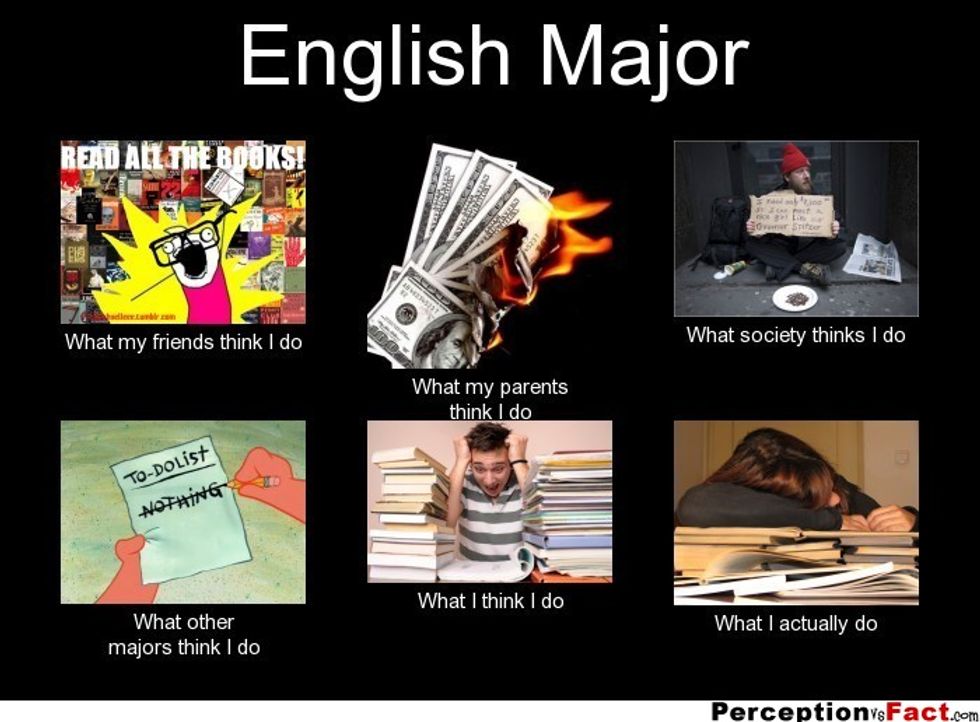
Are they naïve? That would be the case if you think that having an excess amount of money is the goal of college. "Society" seems to in the meme's example, as the example is of a homeless man. A bit offensive and out of touch, but it's a meme not a Teen Vogue article, so I don't actually expect a high amount of "woke". According to Forbes, the number one highest earning college major is Petroleum Engineering and the lowest is Early Childhood Education. Most of the high earning majors list consisted of various types of engineering, and several entries on the lowest list were similar to the lowest earning in that they were different types of teaching jobs. The question that came to me after reading Forbes' listicle/slideshow was: somebody's gotta do it, right? When discussing the financial gain projected from college majors, the stigma that less money=useless inevitably follows and that is where society fails to understand the true meaning of a career. A job is work that you do in order to make money; a career is continuously doing something you love and turning your passion into profit. The dictionary definition of a career is similar to my own as it refers to a career as a "personal calling". College is not about finding a job. You can do that anywhere. College is about finding and preparing for your career. The traditional way that college has been approached is about finding, but in the modern age more college students come from lower-income families and those students are often more practical in that they focus on preparing themselves for the career that they've already planned.
Those who have had to struggle more in life know that if they're going to college at all they have to have a plan, and the reality that most adults won't tell you is that the humanities degrees that are often dismissed as useless are marketable. Forbes says that 51% of those with a degree in English literature feel underemployed, but the truth of your major is that you are not only studying literature, and learning how to analyze texts. As an English major, you have an asset that most job seeking young adults do not: you know how to write, and you know how to write well. Communication is highly valuable in any workplace and there are plenty of jobs for English majors that aren't "teacher"--not that there's anything wrong with teaching, but English majors are often pigeonholed into this profession along with the stigma that it isn't a major that can lead to careers where you really use your degree.
When I was a kid I wanted to be a journalist, but as I got older my dream became published author. It still is truly, and that was how I marked myself to my liberal arts university. I applied early and in my personal statement I stated my dream and that my goal in attending Oglethorpe was to hone my skills as a writer and someday live my dream of being published. Oglethorpe was the perfect place for me for several reasons: they give hella scholarships even though they're a private university, the environment is very welcoming, campus is gorgeous, the unique liberal arts form of education doesn't force me to take the general education math and science courses that public universities would. Ogle's core program is writing intensive and allows me to take courses that help me focus on my major from the start of freshman year.
Math and science is constantly advertised as what you should pursue to make money. Money is seen as the end, the means don't altogether matter, but if you ask society they better be practical. Ever since the third grade math has been my worst school subject. I don't dislike it now, but I've always enjoyed it best when I actually understood things--and I do accurately enough understand math, ask my SAT scores, but wait for senior year of college for me to actually study it again (math core is required, but definitely not as intense as actual math. I call it 'English major math', purely ironically). In my junior year of high school, I felt most confident in my math skills. This sense of sureness in my math knowledge only occurred because I had the best teacher. She made math fun and accessible to everyone and even held math tutoring sessions for the SAT on Saturdays (with OJ and donuts!). Nancy was great, still is, but one day in class we weren't doing much and she ended up discussing the best ways to pursue higher education. She stressed math, science, and --big surprise-- engineering. I was probably the only one perturbed by this, because we are brainwashed from a young age to believe that money is the end and the means shouldn't be important.
As I mentioned, you CAN make money as an English major. Forbes suggests careers in communications (pretty much public relations), various types of editors, senior writers, technical writers, content strategists, and other forms of digital communication as career options for English majors (and those who major in other humanities degrees) that earn $70,000-$90,000 a year. I myself have (hopefully not pipe) dreams of being a high ranking editor at a publishing company, and plan to work at a publishing house after graduation. The focus on communication is why a lot of college students (and personal friends, shout out) double major in English and Communications or minor in communications or technical writing. I wondered before if my degree would be better suited with a communications minor, or a focus in technical writing rather than literary, but my academic advisor--a lovely Ogle professor--told me that the specific focus doesn't matter so much, because you have the skills that a company would need regardless of specific focus.
Digital work is one of the best sources of work for English majors, and odyssey is a clear example. Writing for odyssey has begun my online presence as a professional writer and gotten me almost 150 linkedin connections. The platform serves as a valuable way to start your online presence, and practice your skills in preparation for earning money writing articles for online magazines and platforms like Bustle. There are other platforms you could utilize for this purpose as well, such as Medium. However, my greatest resource in finding out just how lucrative my major could be is Dear English Major--an online blog that interviews English majors about their education history, first job after graduation that's related to their major, and their current job. This site sheds a great light on exactly where and how English majors find work, and gives great inspiration to undergrads like me.
No one will receive inspiration and become motivated to gain a degree in something they love, if society constantly demeans majors in the humanities. End major shaming. It's archaic, and just another way for older adults to trash talk millennials as lazy and not hard-working. In the digital age hire a "grammar Nazi". Learn how to market your degree. Own it. Be the alumni that interviewed me during a scholarship competition for Ogle that majored in Philosophy and got employed by Google, because of his ability to communicate. Be that guy. But most importantly, be who you are and say no to pigeonholing.

